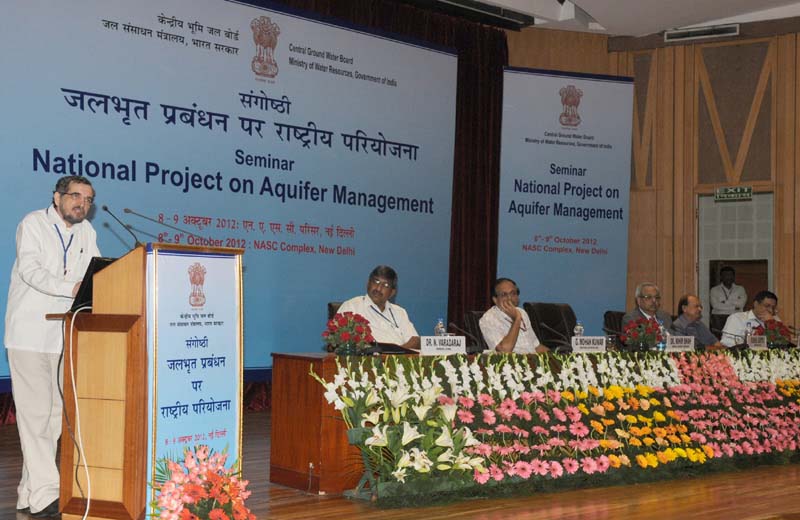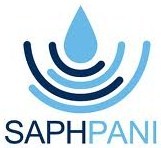/topics/shallow-aquifers
Shallow Aquifers
Seminar by CGWB on National Project on Aquifer Management stresses the need for a paradigm shift in groundwater sector from development to management
Posted on 10 Dec, 2012 05:39 PM
Inaugural session chaired by Dr. Mihir Shah
Image courtesy: www.readandknow.org
Highlights from the 10-year water policy research programme of the International Water Management Institute and the Sir Ratan Tata Trust discussed at the IWMI - TATA Annual Partners' Meet at Anand, between 28-30 November, 2012
Posted on 05 Dec, 2012 02:06 PMIWMI-Tata water policy research programme is a collaborative initiative between the International Water Management Institute (IWMI) and the Sir Ratan Tata Trust (SRTT).
Water for cities - Responding to the urban challenge – Technical papers from the Third National Groundwater Congress by CGWB
Posted on 01 Dec, 2012 08:59 AMDeliberations in the Congress organized by the Central Ground Water Board (CGWB) at New Delhi on March 22-23, 2011 focused on various issues viz., Integrated Water Resource Management, Artificial Recharge to Groundwater, Water Use
Dugwell - An asset for sustainable livelihood: An Arghyam and Action for Social Advancement (ASA) project carried out in 2 tribal bocks of Ratlam district in Madhya Pradesh
Posted on 27 Oct, 2012 10:44 AMAt the same time we also need to keep in mind the judicious use of natural resources, especially in rain-fed areas. Integrating sustainability and demand is one of the greatest challenges faced by communities and nations today.
Spring water recharge programme: A study of the post-programme impact in the Kumaon region of Uttarakhand by CHIRAG
Posted on 12 Oct, 2012 07:43 PMCHIRAG has been working in the Kumaon area for the last 25 years, and is working on recharge springs.
Bacterial contamination in water affects more than half of Chennai
Posted on 09 Oct, 2012 03:44 PMChennai formerly known as Madras, the capital of Tamil Nadu is the sixth most populous city in India with 4.68 million residents as of 2011. Until 1870, it had no piped water supply within the city and people were dependent on public and private wells. The construction of a piped water supply system was started in 1872. This laid the foundation for the present water supply system.

Spring clusters of Doon valley: Extensive modification of the environment has taken place due to human intervention in the Doons
Posted on 01 Oct, 2012 11:11 AMDoon valley is known for its spring clusters. The mountain flanks of the Doon valley have a chain of swamps. Extensive aquifers of Doon spring clusters provide significant/sufficient storage of water. These spring clusters have hydrological effects such as promoting ground water recharge, intercepting rain and storing rain water.
Aquifer systems of India - Atlas compiled by the Central Ground Water Board (2012)
Posted on 29 Sep, 2012 07:26 PMThe Central Ground Water Board (CGWB) under the Ministry of Water Resources has released a publication entitled “Aquifer systems of India” apart from aquifer atlas for six states viz. Kerala, Tamil Nadu, Karnataka, Chhattisgarh, Himachal Pradesh and Meghalaya.
National water framework law – An explanatory note developed by the Sub-Group of Planning Commission’s Working Group on Water Governance for the Twelfth Plan
Posted on 19 Sep, 2012 05:30 PMThis explanatory note by the Planning Commission on the national water law begins with an account of why a national water law is necessary.






